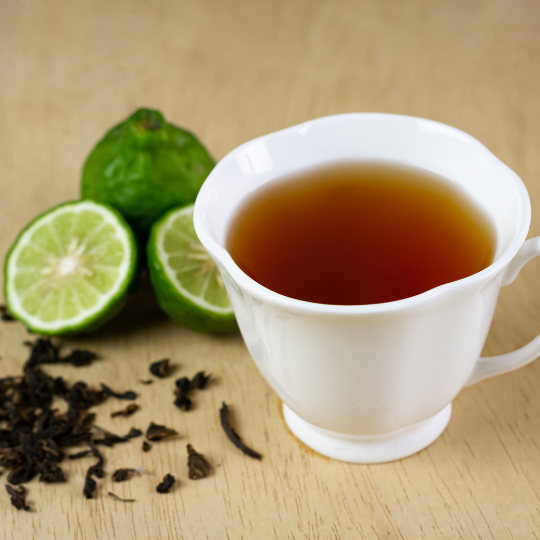
Discovering the Connections Between Tea and Aromatherapy During International Afternoon Tea Week
Share
Discovering the Connections Between Tea and Aromatherapy During International Afternoon Tea Week
Tea and aromatherapy have been used for centuries to promote wellness and relaxation, and they share many similarities. During International Afternoon Tea Week, let's explore the links between teas and aromatherapy. We’ll focus on natural botanicals, some of which feature in our skincare products for dry and sensitive skin.
Peppermint, a popular tea flavour, is known for its refreshing and invigorating properties. Similarly, peppermint (Mentha piperita) essential oil is used in aromatherapy for its cooling and soothing effects. Inhaling peppermint oil can ease sinus discomfort and help bring clarity to busy minds, while drinking peppermint tea can aid digestion and relieve stomach discomfort.
Earl Grey tea, flavoured with bergamot, is another popular choice. The oil from bergamot (Citrus bergamia) is used in aromatherapy for its mood-boosting and calming effects, reducing anxiety and stress levels. It is also popular among those seeking natural remedies for mental health and is super for all types of skin.
Chamomile tea is a favourite for relaxation and improved sleep. The essential oil extracted from chamomile (Anthemis noblis) is also used in aromatherapy for its calming and soothing effects. Inhaling chamomile oil can help reduce stress and stress-related conditions, while drinking chamomile tea can aid digestion and is a lovely tea to include in a bedtime routine.
Chai, a spiced tea originating from India and now enjoyed worldwide, contains many therapeutic spices. Cinnamon (Cinnamomum zeylanicum leaf oil) and cloves (Eugenia caryophyllus leaf oil) are warming and stimulating, while ginger (Zingiber officinale) is commonly used in aromatherapy massage to bring warmth to the soft tissues. These spices are also used in aromatherapy to help alleviate muscle tension and associated issues.
Spoiler alert! You won't want to miss out on the warm spices that will be featured in our seasonal, limited-edition products over the next few months. Get ready to experience a scent sensation like no other!
The similarities between teas and aromatherapy, particularly regarding the use of certain flavours and scents, are significant. Peppermint, bergamot, chamomile, and chai are just a few examples of how these practices intersect. Whether you prefer tea or essential oils, both can provide a natural way to improve your overall wellbeing.
